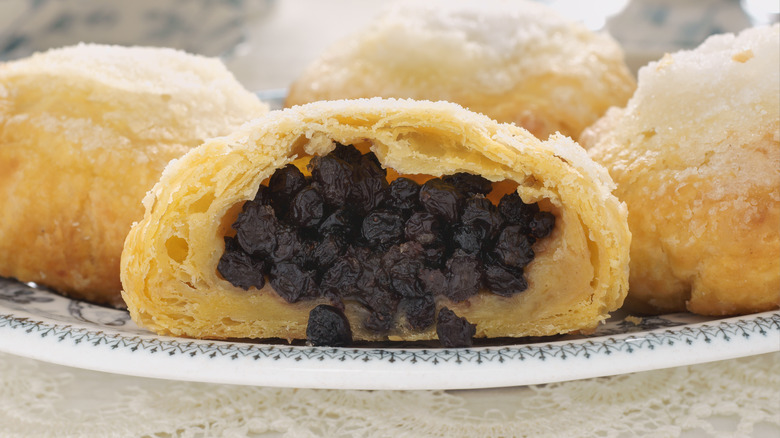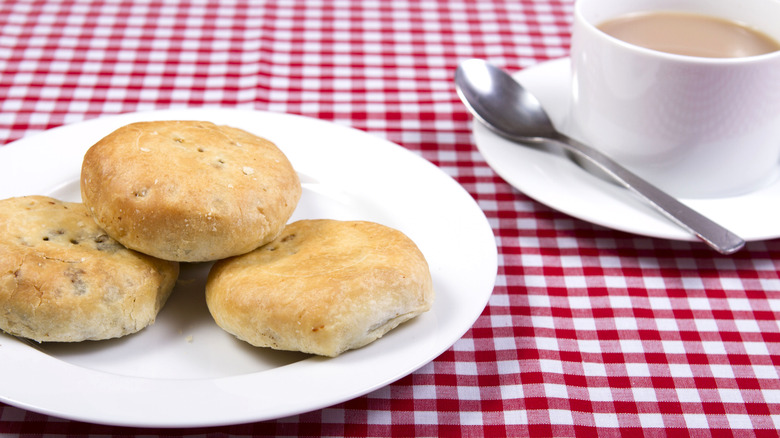The Historical Connection Between British Eccles Cake And A Religious Ban
Eccles cakes, like Chelsea buns, Bath buns, and Bakewell tarts, are a type of British baked good with an eponymic place of origin. Eccles is a town on the outskirts of Manchester that's thought to have been named after an old word for church. This word, in turn, comes from the Greek "ecclesia," which translates to "assembly" and is the same root from which we get the word "ecclesiastical." Appropriately, Eccles was once known for a days-long celebration called the Eccles Wakes held in late August at St. Mary's Church. Eccles cakes were, of course, a part of this tradition, which led to their falling (somewhat) into disrepute once the Puritans were in power.
According to our not-at-all stylized retelling of history, Oliver Cromwell, Lord Protector, and all-around opponent of everything enjoyable, decreed, "Thou people of Eccles, put down thy cakes forthwith!" or words to that effect. In reality, he probably didn't get that specific, but instead clamped down on religious festivals in general. People kept baking the cakes on the down low, though, and come the Restoration (of the monarchy, in case your high school didn't get too deep into British history), the Wakes — and the cakes — returned. While the Wakes were eventually re-banned in the 19th century, this time due to the rowdy behavior of those attending, the cakes remain popular to the point where they're now mass-produced. In fact, the Real Lancashire Eccles Cakes factory cranks out more than half a million each week.
So what is an Eccles cake and how is it eaten?
The main characteristic of an Eccles cake, and something you're sure to notice as soon as you bite into one, is the fact that they are chock full o'currants. Not quite to such an extent as a similar Scottish pastry known as the Fly Cemetery, but yes, if you're a currant hater, there's really no way of eating around those dead flies, er, dried fruits. These days, Eccles cakes are typically vegetarian, although they are not vegan since the puff pastry they're made with includes butter. So does the filling, which also contains brown sugar, spices, and candied citrus peel. Eccles cake recipes dating back to the 18th century, however, call for such appetizing ingredients as boiled bovine hoof.
Eccles cakes, while sweet, are traditionally accompanied by cheese. Lancashire cheese, to be specific, but if you can't get hold of any, Caerphilly, Cheshire, or Wallace and Gromit favorite Wensleydale will do, or even cheddar if your U.S. grocery store doesn't stock British cheeses. While the cakes can be eaten either at room temperature or warm, there is one caveat as regards heating them: According to fire safety experts, they should only be warmed in the oven and never in the microwave. In 2013, the Daily Mail reported that the Lancashire Fire and Rescue Service had encountered a number of home fires caused by people nuking their Eccles cakes and inadvertently setting fire to the sugar on top.

